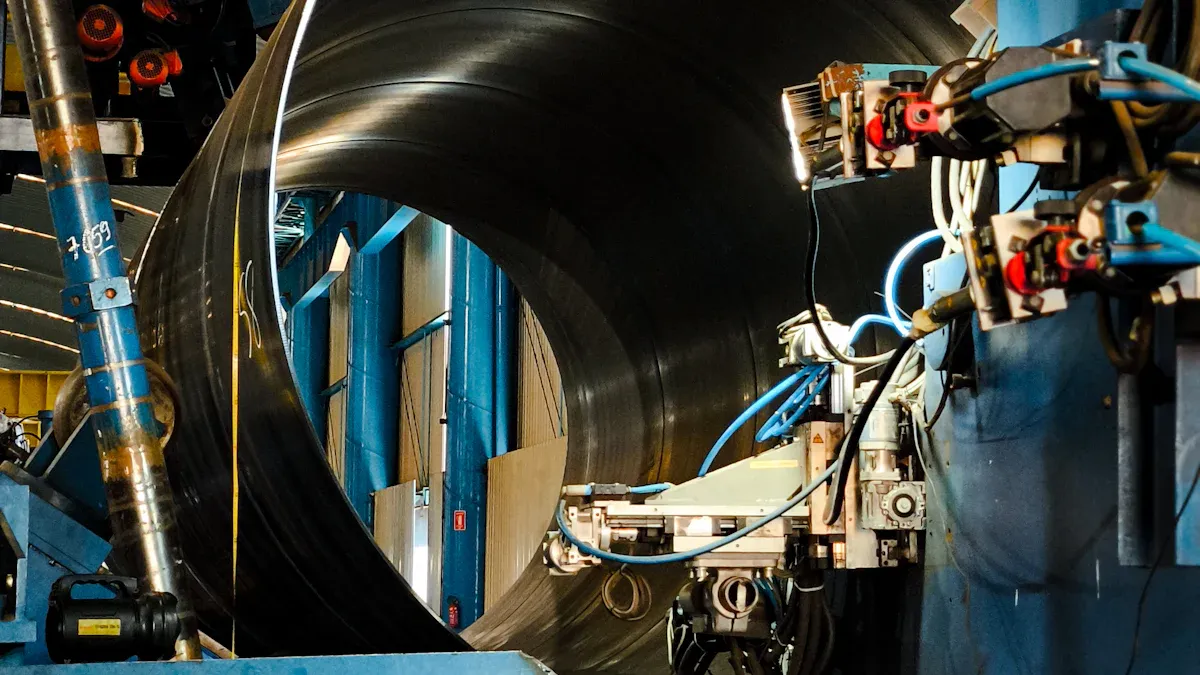
Forged shafts are vital components in industries such as automotive, aerospace, energy, and construction. These precision-engineered parts are crucial for producing axle beams, gears, and other high-performance equipment. For instance, approximately 70% of forged engineering components are utilized in construction equipment, mining machinery, and industrial automation systems. The growing demand for these components is driven by global infrastructure development projects.
Asia has solidified its position as a hub for forged shaft manufacturing, with countries like China and India leading the market. Backed by significant investments in automation and advanced machinery, the region has become synonymous with efficiency and innovation. The Asia-Pacific region accounts for 45% of global investments in forging technologies, further cementing its leadership. This guide is designed to assist buyers in identifying the Top Forged Shaft Manufacturers in Asia, enabling them to make well-informed purchasing decisions.
Key Takeaways
- Focus on good product quality and proper certifications. Check for ISO certifications to trust the manufacturer.
- Pick manufacturers using new ideas and modern tools. This helps make better and more efficient products.
- Look at how they care for the environment. Choose companies that reduce waste and use green methods.
- Check their reputation by reading customer reviews and awards. A good reputation means they likely offer great service and products.
- Know what your industry needs. Custom solutions make sure the forged shafts work well for your tasks.
Criteria for Selection
Product Quality and Certifications
Product quality is a critical factor when selecting a forged shaft manufacturer. High-quality forged shafts ensure durability, precision, and optimal performance in demanding applications. Manufacturers often use premium materials like carbon steel and alloy steel to meet these standards. For example, carbon steel grades such as 35, 45, and 50 are valued for their mechanical properties, while alloy steels like 20Cr and 40CrNi are preferred for specialized requirements. Structural design also plays a vital role, as it determines the shape, dimensions, and load distribution of the shafts.
Certifications further validate a manufacturer’s commitment to quality. ISO 9001 certification, for instance, demonstrates adherence to international quality management standards. Buyers should prioritize manufacturers with documented certifications to ensure reliability and compliance with industry standards.
| Material Type | Description |
|---|---|
| Carbon Steel | High-quality carbon structural steel (e.g., 35, 45, 50) used for its mechanical properties. |
| Alloy Steel | Offers higher mechanical properties, used for shafts with special requirements (e.g., 20Cr, 40CrNi). |
| Structural Design | Involves determining the shape, dimensions, and load distribution for optimal performance. |
Innovation and Advanced Technologies
Innovation drives efficiency and precision in forged shaft manufacturing. Leading manufacturers invest heavily in advanced technologies, including automation and digitalization. Approximately 60% of the press forging machine market’s investments focus on these advancements. The Asia-Pacific region, home to many top forged shaft manufacturers in Asia, accounts for 45% of these investments due to rapid industrialization in countries like China and India.
Prominent companies like Bharat Forge exemplify innovation by integrating Industry 4.0 technologies into their processes. This approach enhances efficiency and aligns with environmental standards. Additionally, the competitive landscape of the small and large shaft forgings market highlights key players and regional opportunities, offering valuable insights into innovation trends.
Sustainability and Environmental Practices
Sustainability is increasingly important in the manufacturing sector. Forged shaft production achieves high material utilization rates, with 85-90% of materials used effectively. This near-net-shape production minimizes waste and supports environmental goals. Cold forging, in particular, stands out for its reduced energy consumption and lower waste generation compared to traditional methods.
Manufacturers committed to sustainability often adopt eco-friendly practices, such as using natural gas-fueled heat treatment furnaces. These efforts not only reduce environmental impact but also align with global standards for green manufacturing. Buyers should consider manufacturers that prioritize sustainability to support environmentally responsible practices.
Market Reputation and Customer Reviews
Market reputation plays a significant role in identifying reliable forged shaft manufacturers. Companies with a strong reputation often demonstrate consistent quality, timely delivery, and excellent customer service. Buyers can assess a manufacturer’s reputation by examining its history, partnerships, and industry achievements. For example, manufacturers that collaborate with global leaders in automotive or aerospace industries often showcase their ability to meet high standards.
Customer reviews provide valuable insights into a manufacturer’s performance. These reviews highlight real-world experiences, offering a glimpse into product quality, delivery timelines, and after-sales support. Positive feedback from long-term clients often indicates reliability and trustworthiness. On the other hand, recurring complaints may signal potential issues that buyers should consider.
Online platforms and industry forums serve as excellent resources for gathering customer feedback. Websites like Alibaba and Global Sources often feature detailed reviews and ratings for manufacturers. Additionally, trade shows and industry events allow buyers to interact with existing customers and gather firsthand information about a company’s reputation.
Buyers should also consider awards and certifications as indicators of market reputation. Recognitions such as “Supplier of the Year” or ISO certifications reflect a manufacturer’s commitment to excellence. By combining customer reviews with an evaluation of market reputation, buyers can make informed decisions when selecting from the top forged shaft manufacturers in Asia.
Top 10 Forged Shaft Manufacturers in Asia
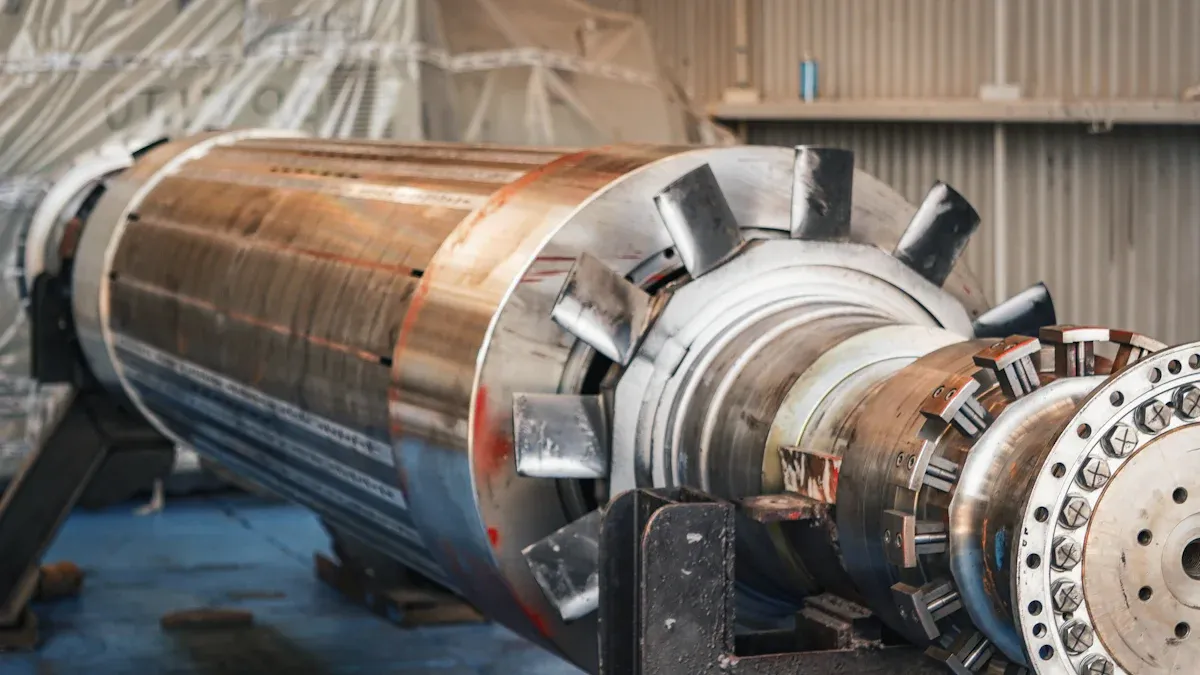
Nippon Steel Corporation
Nippon Steel Corporation, headquartered in Tokyo, Japan, is a global leader in steel production and forging technologies. The company specializes in manufacturing high-quality forged shafts for industries such as automotive, energy, and construction. Nippon Steel’s advanced forging facilities utilize cutting-edge technologies, including precision-controlled hydraulic presses and automated machining systems. These innovations ensure the production of durable and reliable forged shafts.
The company places a strong emphasis on quality assurance. It adheres to international standards such as ISO 9001 and ISO 14001, which reflect its commitment to quality and environmental sustainability. Nippon Steel’s forged shafts are known for their exceptional mechanical properties, making them suitable for demanding applications. Its global distribution network ensures timely delivery to clients worldwide.
POSCO
POSCO, based in Pohang, South Korea, ranks among the top forged shaft manufacturers in Asia. The company is renowned for its innovative approach to steel production and forging. POSCO’s state-of-the-art facilities incorporate advanced technologies like hot forging and precision machining, enabling the production of shafts with superior strength and accuracy.
Sustainability is a core focus for POSCO. The company employs eco-friendly practices, such as using energy-efficient equipment and recycling materials. Its forged shafts are widely used in industries like shipbuilding, automotive, and heavy machinery. POSCO’s dedication to research and development ensures continuous improvement in product quality and performance.
Baosteel Group Corporation
Baosteel Group Corporation, headquartered in Shanghai, China, is a prominent name in the forging industry. The company offers a diverse range of forged shafts designed to meet the needs of various sectors, including aerospace, mining, and energy. Baosteel’s advanced manufacturing processes, such as precision forging and heat treatment, guarantee high-quality products with excellent durability.
The company is committed to sustainability and innovation. It integrates green manufacturing practices, such as reducing carbon emissions and optimizing material usage. Baosteel’s forged shafts are highly regarded for their reliability and performance under extreme conditions. Its strong market reputation and extensive customer base make it a preferred choice for buyers seeking top-quality forged shafts.
JFE Steel Corporation
JFE Steel Corporation, based in Tokyo, Japan, is a prominent name among the Top Forged Shaft Manufacturers in Asia. The company is renowned for its advanced manufacturing technologies and high-quality forged products. JFE Steel operates on a global scale, supplying forged shafts to industries such as automotive, construction, and energy.
The company’s commitment to innovation and precision sets it apart. Its manufacturing facilities utilize cutting-edge technology to produce forged shafts with exceptional durability and performance. JFE Steel’s products meet stringent international standards, ensuring reliability in demanding applications.
| Indicator | Description |
|---|---|
| Advanced Technology | Utilizes cutting-edge technology in manufacturing |
| High-Quality Products | Known for producing high-quality forged shafts |
| Global Presence | Operates on an international scale, enhancing reputation |
JFE Steel’s dedication to sustainability further strengthens its position in the market. The company integrates eco-friendly practices into its operations, reducing waste and optimizing material usage. Its global reputation and consistent quality make it a trusted choice for buyers seeking reliable forged shafts.
Hyundai Steel
Hyundai Steel, headquartered in Incheon, South Korea, is a leading player in the forged shaft manufacturing industry. The company specializes in producing high-strength forged shafts for sectors such as shipbuilding, automotive, and heavy machinery. Its advanced forging techniques ensure precision and durability in every product.
Hyundai Steel’s focus on innovation drives its success. The company invests heavily in research and development, adopting state-of-the-art technologies to enhance efficiency and product quality. Its forged shafts are designed to withstand extreme conditions, making them ideal for heavy-duty applications.
Sustainability is a core value for Hyundai Steel. The company employs eco-friendly manufacturing processes, including energy-efficient equipment and material recycling. These practices align with global environmental standards, reinforcing its commitment to responsible production. Hyundai Steel’s reputation for quality and innovation solidifies its position among the Top Forged Shaft Manufacturers in Asia.
Bharat Forge Ltd.
Bharat Forge Ltd., based in Pune, India, is recognized as the world’s largest forging company. It plays a pivotal role in the aerospace and automotive forging sectors, producing high-performance forged shafts for global markets. The company operates manufacturing facilities in India, Germany, Sweden, France, and North America, ensuring a strong international presence.
Bharat Forge’s achievements highlight its excellence in the industry. The company has received numerous awards, including the Golden Peacock Award for Occupational Health & Safety and the Make in India Award for indigenization efforts. Its focus on innovation and quality has earned it recognition as a top global supplier.
| Year | Award/Recognition | Description |
|---|---|---|
| 2009 | Golden Peacock Award | Occupational Health & Safety |
| 2016 | Make in India Award | Indigenization through Make in India |
| 2017 | Daimler AG | Top global supplier for 2016 |
| 2018 | AIMA Managing India Awards | Indian MNC of the Year |
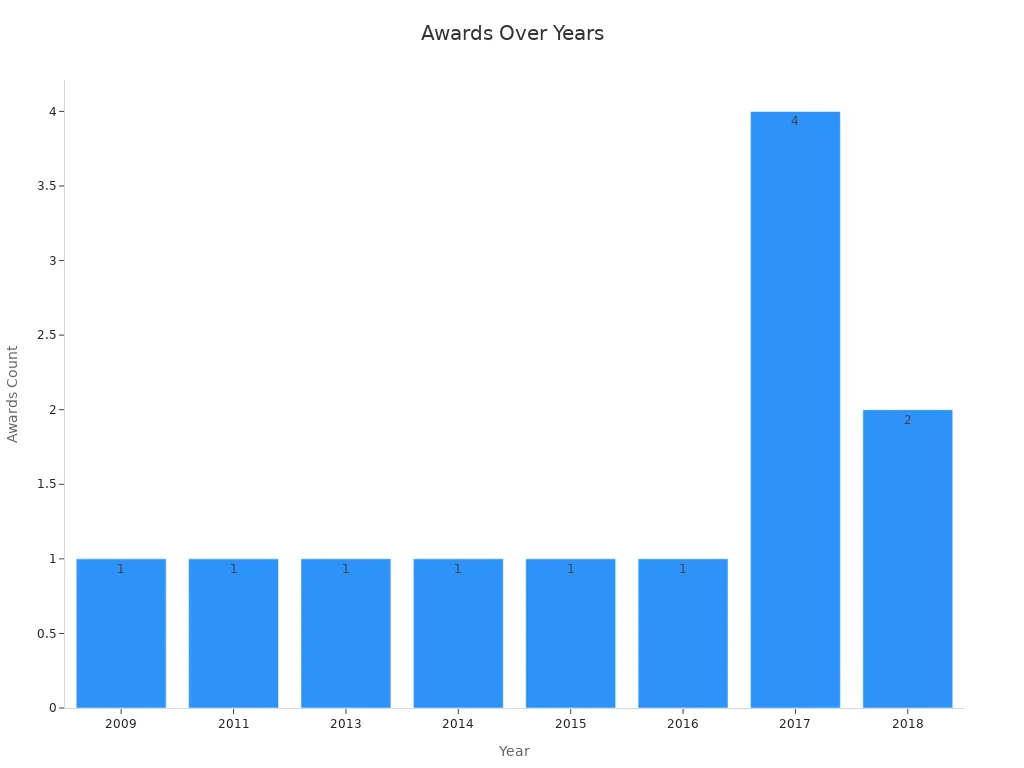
Bharat Forge reported a Trailing Twelve Months (TTM) revenue of ₹9,009 Crores, reflecting its strong financial position. Its dedication to innovation, sustainability, and customer satisfaction cements its status among the Top Forged Shaft Manufacturers in Asia.
ThyssenKrupp Forged Technologies
ThyssenKrupp Forged Technologies, a division of the German industrial giant ThyssenKrupp, stands out as a leader in the forging industry. The company serves diverse sectors, including automotive, mining, and energy, with a strong focus on sustainability and innovation. Its high-performance crankshafts and gear components are widely recognized for their durability and precision.
The company’s commitment to green transformation is evident in its operations. ThyssenKrupp prioritizes reducing CO2 emissions and enhancing sustainability through energy-efficient production techniques and recyclable materials. Its portfolio emphasizes growth in segments related to renewable energy and hydrogen technologies.
| Area of Action | Description |
|---|---|
| Portfolio | Focus on profitable growth in segments related to green transformation, hydrogen, and renewable energy. |
| Performance | Aims for sustained positive value and cash flow contributions from all segments. |
| Green Transformation | Commitment to reducing CO2 emissions and enhancing sustainability in production processes. |
ThyssenKrupp’s innovative forging methods further enhance product quality. These methods ensure that its forged shafts meet the rigorous demands of modern industries. Its dedication to sustainability and advanced manufacturing processes solidifies its position among the Top Forged Shaft Manufacturers in Asia.
Precision Castparts Corp.
Precision Castparts Corp. (PCC), headquartered in the United States, has a significant presence in Asia due to its expertise in closed-die forging and superalloy materials. The company specializes in producing forged shafts for critical applications in aerospace, power generation, and industrial sectors.
PCC’s focus on quality and precision sets it apart. Its forged shafts are crafted using advanced techniques that ensure exceptional strength and reliability. The company’s specialization in superalloy materials makes its products ideal for high-stress environments, such as jet engines and power turbines.
| Company Name | Specialization | Market Focus |
|---|---|---|
| Precision Castparts Corp. | Closed-die forging, superalloy materials | Aerospace, power generation, industrial |
PCC’s reputation for excellence has earned it a place among the Top Forged Shaft Manufacturers in Asia. Its ability to deliver high-performance products tailored to specific industry needs makes it a preferred choice for buyers seeking reliability and innovation.
Scot Forge
Scot Forge, a leading name in the forging industry, is renowned for its custom open-die forging and rolled ring forgings. The company caters to a wide range of industries, including defense, nuclear, and infrastructure, showcasing its versatility and expertise.
Scot Forge employs computer-controlled processes to ensure precision and consistency in manufacturing. Its commitment to quality is reflected in its ISO 9001:2015 and AS9100D certifications, as well as NADCAP accreditation for heat treatment and nondestructive testing. These certifications highlight the company’s dedication to meeting the highest industry standards.
| Performance Indicator | Description |
|---|---|
| Custom Open-Die Forging | Scot Forge specializes in custom open-die forging, catering to specific client needs. |
| Rolled Ring Forgings | The company also excels in rolled ring forgings, enhancing its product range. |
| Industry Diversity | Serves various sectors including defense, nuclear, and infrastructure, showcasing versatility. |
| Innovation and Technology | Utilizes computer-controlled processes for precision and consistency in manufacturing. |
| Quality Certifications | ISO 9001:2015 and AS9100D certifications demonstrate commitment to quality and customer satisfaction. |
Scot Forge’s innovative approach and industry diversity make it a key player among the Top Forged Shaft Manufacturers in Asia. Its ability to deliver customized solutions and maintain high-quality standards ensures its continued success in the global market.
Rongli Forging Co., Ltd.
Rongli Forging Co., Ltd., a subsidiary of Rongli Heavy Industry, has established itself as a trusted name in the forging industry. With over 20 years of experience, the company delivers high-quality forging products to clients worldwide. Its strategic location near Hangzhou, China, provides convenient access to major ports like Shanghai and Ningbo, ensuring efficient logistics and timely deliveries.
The company operates under an ISO 9001:2008-certified quality management system, which guarantees adherence to international standards. Rongli’s advanced manufacturing capabilities include free-die forging and machining processes. These facilities enable the production of components weighing up to 80 tons with exceptional precision and reliability. Key equipment includes hydraulic forging presses, forging manipulators, and heat treatment furnaces fueled by natural gas. These tools ensure high material utilization rates and reduced environmental impact.
Rongli specializes in producing forged shafts and components for industries such as wind power, mining, oil and gas, and shipbuilding. Its product range includes wind turbine spindles, crankshafts, gears, and high-pressure grinding roll forgings. The company’s engineering team, consisting of over 30 experienced professionals, ensures that each product meets stringent performance and safety requirements.
Clients benefit from Rongli’s dedicated customer service team, which provides seamless communication and project management. The company’s commitment to innovation, sustainability, and quality positions it among the Top Forged Shaft Manufacturers in Asia. Buyers seeking reliable and durable forged shafts will find Rongli Forging Co., Ltd. to be a dependable partner.
Tip: When selecting a manufacturer, consider their certifications, production capabilities, and customer support to ensure the best fit for your needs.
Comparison Table
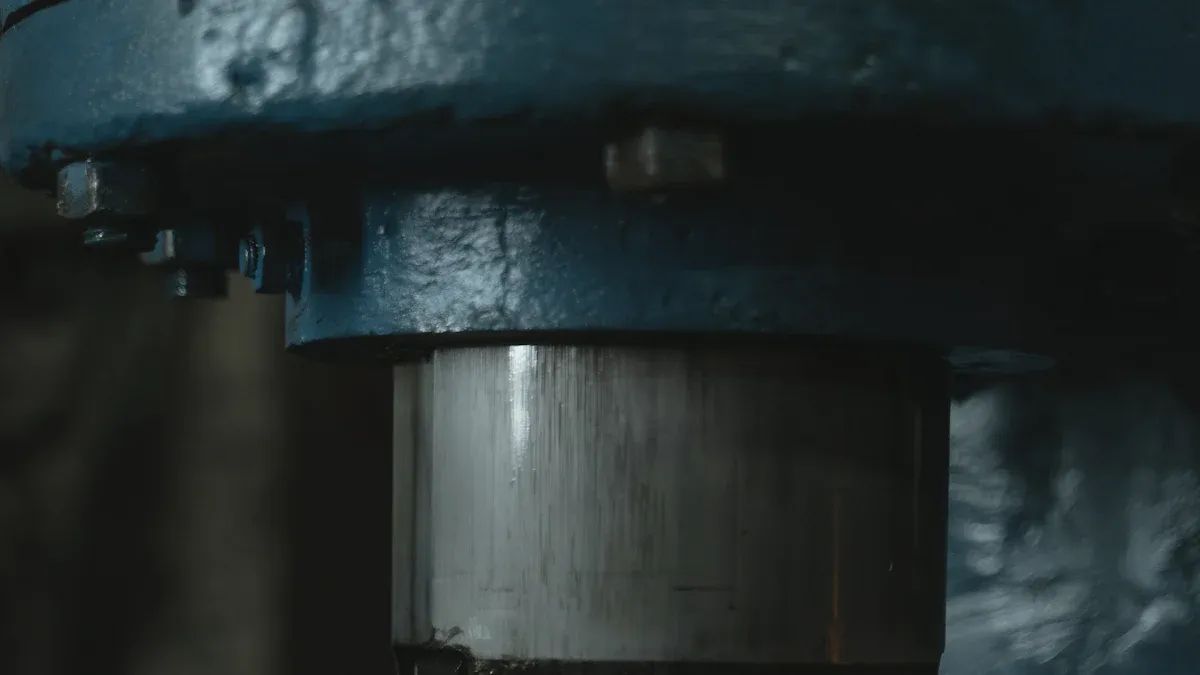
Key Details of All 10 Manufacturers
When comparing forged shaft manufacturers, several parameters play a crucial role in determining their suitability for specific industry needs. These include manufacturing processes, certifications, sustainability practices, and market reputation. The choice of metalworking processes, such as forging, casting, or fabrication, directly impacts the performance, cost, and applicability of forged shafts. Each method offers unique advantages tailored to different industries, making these parameters essential for a comprehensive comparison.
The competitive landscape for forged shafts is shaped by market dynamics and supplier information. With over 4,251 active global buyers, manufacturers must align their offerings with market demands. For instance, the U.S. market provides valuable insights into buyer preferences, helping manufacturers identify suitable partners based on their business objectives.
Below is a table summarizing the key details of the top 10 forged shaft manufacturers in Asia:
| Manufacturer | Country | Specialization | Certifications | Sustainability Practices | Market Focus |
|---|---|---|---|---|---|
| Nippon Steel Corporation | Japan | High-quality forged shafts | ISO 9001, ISO 14001 | Eco-friendly manufacturing | Automotive, energy, construction |
| POSCO | South Korea | Innovative steel production | ISO 9001 | Energy-efficient equipment | Shipbuilding, automotive |
| Baosteel Group Corporation | China | Precision forging and heat treatment | ISO 9001 | Green manufacturing practices | Aerospace, mining, energy |
| JFE Steel Corporation | Japan | Advanced manufacturing technologies | ISO 9001 | Waste reduction initiatives | Automotive, construction |
| Hyundai Steel | South Korea | High-strength forged shafts | ISO 9001 | Material recycling | Shipbuilding, heavy machinery |
| Bharat Forge Ltd. | India | Aerospace and automotive forging | ISO 9001 | Sustainable production methods | Aerospace, automotive |
| ThyssenKrupp Forged Tech. | Germany/Asia | High-performance crankshafts, gears | ISO 9001 | CO2 emission reduction | Mining, energy |
| Precision Castparts Corp. | USA/Asia | Closed-die forging, superalloy materials | ISO 9001 | Advanced energy-saving processes | Aerospace, power generation |
| Scot Forge | USA/Asia | Custom open-die forging | ISO 9001:2015, AS9100D | Eco-friendly heat treatment | Defense, nuclear, infrastructure |
| Rongli Forging Co., Ltd. | China | Free-die forging, large components | ISO 9001:2008 | Natural gas-fueled furnaces | Wind power, oil & gas, mining |
The table highlights the diversity in specialization and sustainability practices among these manufacturers. For example, Rongli Forging Co., Ltd. excels in producing large components like wind turbine spindles, while Bharat Forge Ltd. leads in aerospace and automotive forging.
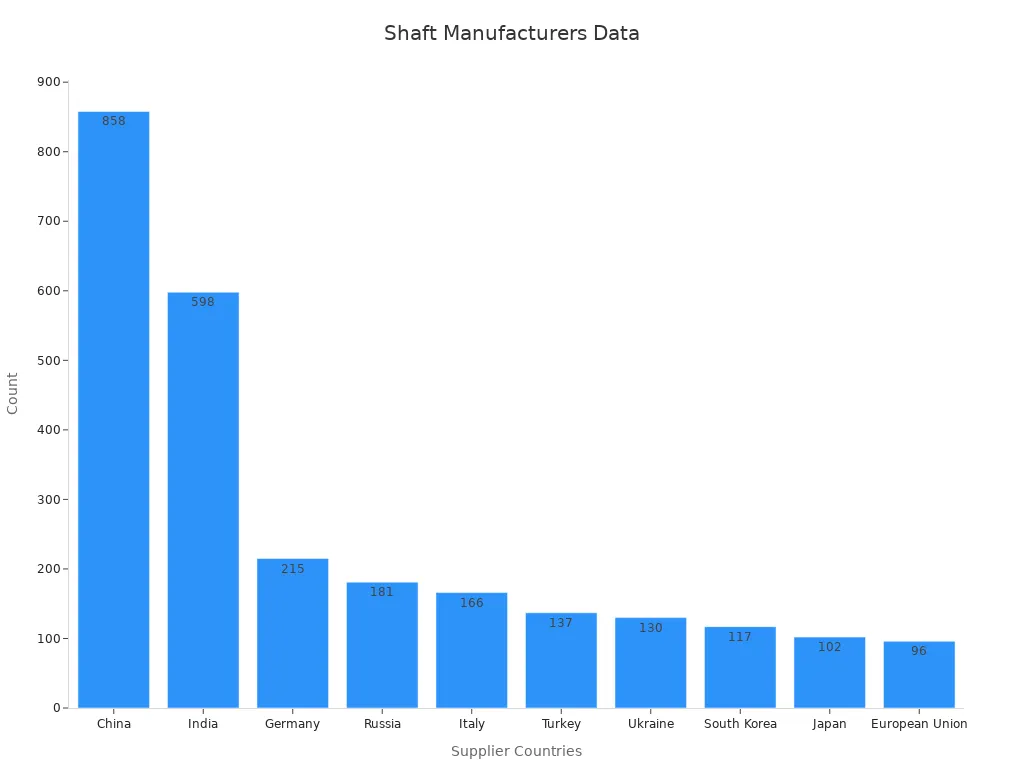
India dominates the forged shaft export market with 46,019 shipments, representing a 79% market share. China follows with 5,305 shipments (9%), while South Korea contributes 1,394 shipments (2%). This data underscores the prominence of Asian manufacturers in the global market.
Note: Buyers should evaluate manufacturers based on their industry-specific requirements, certifications, and sustainability practices to make informed decisions.
How to Choose the Right Manufacturer
Assessing Industry-Specific Requirements
Selecting the right forged shaft manufacturer begins with understanding the specific needs of your industry. Each sector, from automotive to energy, has unique requirements that influence the choice of manufacturing processes and materials. For example, forged components like crankshafts and connecting rods are essential in the automotive sector due to their strength and fatigue resistance. Similarly, custom-forged parts play a critical role in power generation, particularly for turbines and hydraulic systems.
Buyers should evaluate the following factors to align their requirements with the manufacturer’s capabilities:
- Strength and Durability: Forging is ideal for high-stress applications, as it enhances the mechanical properties of components.
- Complexity and Precision: Projects requiring intricate designs or tight tolerances benefit from advanced forging techniques.
- Production Volume: High-volume production often justifies the initial tooling costs associated with forging.
- Environmental Impact: Manufacturers with eco-friendly practices, such as material optimization, support sustainability goals.
The global shaft forging industry’s growth underscores the importance of tailored solutions. With 44 manufacturers and exporters serving 50 importers, the market offers diverse options to meet specific application needs.
Evaluating Budget and Cost-Effectiveness
Budget considerations are crucial when choosing a manufacturer. Forging, while initially more expensive due to tooling costs, proves economical for high-volume production. It offers better long-term value by delivering components with superior strength and durability. Buyers should assess the following cost-related factors:
- Production Volume: Higher volumes reduce per-unit costs, making forging a cost-effective choice for large-scale projects.
- Part Complexity: Simple designs may benefit from alternative methods, but complex parts often justify forging’s upfront investment.
- Material Requirements: The choice of materials impacts both cost and performance. Alloy steels, for instance, provide enhanced properties for specialized applications.
Understanding competitors’ pricing also helps formulate effective procurement strategies. Buyers can leverage data on import price ranges to identify optimal quality levels and negotiate exclusive supply contracts. These strategies ensure cost efficiency while maintaining a competitive edge.
Considering Proximity and Logistics
Proximity to the manufacturer significantly affects transportation costs and lead times. Efficient logistics reduce supply chain expenses and improve inventory management. Key metrics to evaluate include:
| Metric | Description |
|---|---|
| Transportation Costs | Includes freight charges, fuel costs, labor expenses, and accessorial fees. |
| Supplier Lead Time | Time taken from order placement to delivery, impacting production schedules. |
| Optimization Strategies | Load planning, route optimization, and evaluating transportation modes to minimize costs. |
Manufacturers located near major ports or industrial hubs offer logistical advantages. For instance, Rongli Forging Co., Ltd.’s proximity to Shanghai and Ningbo ports ensures timely deliveries and reduced freight charges. Buyers should prioritize manufacturers with streamlined logistics to enhance supply chain efficiency.
Tip: Evaluate transportation costs and lead times alongside production capabilities to ensure a seamless procurement process.
Checking Customer Support and After-Sales Service
Customer support and after-sales service play a crucial role in ensuring a smooth purchasing experience. Buyers should evaluate these aspects carefully when selecting a forged shaft manufacturer. Reliable support teams help resolve issues quickly, while effective after-sales services ensure long-term satisfaction.
Key Features of Customer Support
Manufacturers with strong customer support systems provide clear communication and timely assistance. Buyers should look for the following features:
- Dedicated Support Teams: Companies with specialized teams handle inquiries efficiently.
- Multilingual Assistance: International buyers benefit from support in multiple languages.
- Availability: 24/7 support ensures help during emergencies.
Tip: Check if the manufacturer offers a direct hotline or email for urgent queries.
Importance of After-Sales Service
After-sales service ensures the product performs as expected after delivery. Buyers should prioritize manufacturers offering:
- Warranty Coverage: A warranty protects against manufacturing defects.
- Maintenance Services: Regular inspections and repairs extend the product’s lifespan.
- Replacement Policies: Easy replacement options reduce downtime.
| Service Type | Description | Benefit to Buyers |
|---|---|---|
| Warranty Coverage | Covers defects in manufacturing | Reduces financial risk |
| Maintenance Services | Includes inspections and repairs | Improves product durability |
| Replacement Policies | Offers quick replacements for faulty parts | Minimizes operational disruptions |
Evaluating Customer Feedback
Customer reviews provide valuable insights into the manufacturer’s support quality. Buyers should explore online platforms and forums for feedback on response times, issue resolution, and overall satisfaction.
Note: Manufacturers with positive reviews often demonstrate reliability and commitment to customer care.
By assessing customer support and after-sales service, buyers can ensure a hassle-free experience and maximize the value of their investment.
Selecting the right forged shaft manufacturer plays a vital role in ensuring the success of industrial projects. Buyers must prioritize quality, reputation, and specific needs to achieve optimal performance and safety.
- Tailored components meet industry standards and prevent costly failures in critical applications like power generation.
- Reliable manufacturers use appropriate materials and processes to deliver durable and precise products.
- Understanding end-use requirements helps buyers align their choices with project goals.
Tip: Use this guide to evaluate manufacturers based on certifications, capabilities, and customer feedback for informed decision-making.
FAQ
What industries commonly use forged shafts?
Forged shafts are essential in industries like automotive, aerospace, energy, and construction. They are used in applications such as wind turbines, mining equipment, shipbuilding, and power generation systems due to their strength, durability, and precision.
Why is ISO certification important for forged shaft manufacturers?
ISO certification ensures that manufacturers meet international quality standards. It guarantees consistent product quality, safety, and reliability. Buyers can trust ISO-certified manufacturers to deliver components that comply with industry regulations and perform well under demanding conditions.
How do manufacturers ensure sustainability in forging processes?
Manufacturers adopt eco-friendly practices like using natural gas-fueled furnaces, recycling materials, and optimizing energy consumption. These methods reduce waste and carbon emissions, aligning with global environmental standards and supporting sustainable manufacturing.
What factors should buyers consider when choosing a forged shaft manufacturer?
Buyers should evaluate product quality, certifications, production capabilities, and customer support. Proximity to ports and logistics efficiency also play a role in ensuring timely deliveries and cost-effective procurement.
Are forged shafts customizable for specific applications?
Yes, forged shafts can be customized to meet specific industry requirements. Manufacturers offer tailored solutions, including unique designs, materials, and dimensions, to ensure optimal performance in specialized applications like aerospace or heavy machinery.
Tip: Always communicate your project needs clearly to the manufacturer for the best results.
Post time: Mar-31-2025



